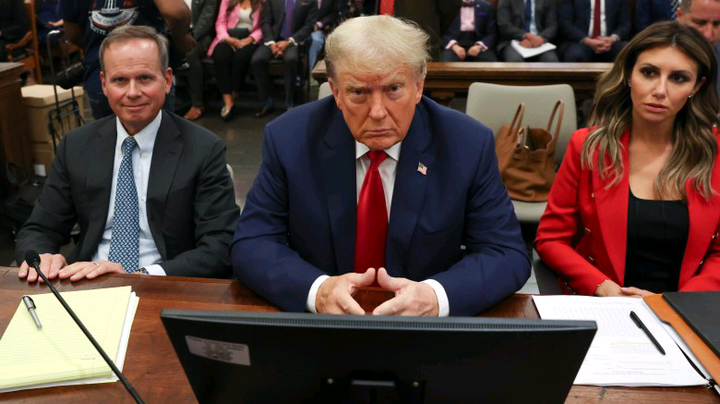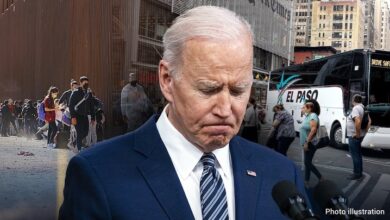Supreme Court Issues Landmark Decision on Case Seeking to Disqualify Trump From Ballot

As the U.S. Supreme Court readies itself for a momentous decision that could determine whether former President Donald Trump is eligible for another presidential bid, legal experts are closely examining the ramifications of disqualifying him under the 14th Amendment, specifically addressing allegations of insurrection. The court’s forthcoming decision, scheduled for an expedited hearing on February 8, holds the key to a highly contentious case with profound implications for the political landscape, as reported by the Conservative Brief on January 10, 2024.
Legal scholars, among them Ned Foley from Ohio State University, express concern about a decision that sidesteps the main issue without offering a clear stance. Foley underscores the significance of resolving disqualification issues before ballots are cast to prevent post-election chaos. The pivotal question arises from the 14th Amendment’s “insurrection clause,” outlining certain positions barred for individuals involved in insurrection: does it apply to the presidency?
Trump’s legal team vehemently rejects any insurrectionist involvement, asserting that the clause is irrelevant to his case. ( 📺 Speech Filled with Falsehoods: Joe Biden Faces Disruption in Charleston ) They argue that neither the catch-all provision nor Trump’s 2017 presidential oath falls within the insurrection clause’s scope. If the Supreme Court accepts these arguments, it could spare Trump from disqualification, permitting him to remain on the ballot. The potential legal avenues present both advantages and pitfalls. A narrow, technical interpretation of the insurrection clause might offer a clean resolution with bipartisan support but risks being too complex for average voters to grasp.
Scholars generally lean towards including the presidency in the amendment’s coverage, emphasizing the potential unintended consequences of a decision favoring Trump on constitutional provisions beyond the insurrection clause. Marty Lederman, a law professor at Georgetown University, points out the possible ripple effects on various constitutional provisions, from religious tests for federal offices to the Senate’s ability to disqualify impeached officers.
The risk of broad legal consequences adds complexity to the Supreme Court’s decision-making process. The Colorado ruling that initiated Trump’s potential disqualification faces criticism for not adequately safeguarding his rights during the trial. (news-us.feednews.com) Legal experts argue that a decision based on technicalities might not offer a fair assessment of the insurrection allegations against Trump.
As the Supreme Court grapples with this high-stakes decision, the nation awaits the resolution of a legal and political dilemma that could shape the course of the 2024 presidential election. ( 📈 Judges’ Inquiry Erupts Courtroom Leaving Trump Startled ) The outcome will not only determine Trump’s eligibility but could also set a precedent for interpreting the 14th Amendment’s application to the highest office in the land.
This looming Supreme Court decision adds a layer of complexity to the already polarized political climate. Legal observers anticipate that a ruling favoring Trump might intensify debates on the judiciary’s role in shaping electoral outcomes. Additionally, the potential fallout could impact public perception of the judiciary’s impartiality, further fueling the contentious discourse surrounding the intersection of law, politics, and constitutional interpretation. As the February 8 hearing approaches, the nation braces for a decision that extends beyond Trump’s individual case, resonating throughout the corridors of power and public discourse.


